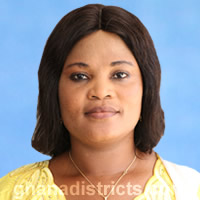Good health is very essential for every human development as it promotes productivity, and leads to increase in incomes and better social life.
The Sawla-Tuna- Kalba District health services are divided into four (4) sub-districts namely Sawla, Tuna, Kalba and Gindabou. Each of these sub-districts has an operational area within the catchments areas to produce health facility. There are private clinics and Maternity Homes at Sawla and Tuna which serve people from Sawla, Tuna and the surrounding communities.
ACCESS TO HEALTH CARE, MALARIA CONTROL AND PREVENTION OF HIV/AIDS
The District Health Directorate Sawla-Tuna-Kalba District aims at improving the health status of the people in the District through the promotion of quality health services that are accessible and affordable to the people. In this regard, the Assembly is working closely with the Health Directorate in the area of health.
Health care delivering has improved nationwide, however despite the huge investments made by government there exist constraints in terms of accessibility and affordability in the district some of the factors that impede health care delivering among others are geographical financial, socio-cultural barriers and weak support systems.
This in doubt does not promote the atmosphere necessary for development of the human resource of the District. It is refreshing however to note that members of community who took advantage of the DMHIS when the district was under the Bole District Assembly are now accessing health care “free”. The scheme made provision for the poorest and most vulnerable thereby exempting them from making financial contribution to the system. The DMHIS in Sawla/Tuna/Kalba District is however yet to take off independently.
REPRODUCTIVE AND CHILD HEALTH VISION WITH MDG 4 AND 5 SET FOR REDUCING MATERNAL AND INFANT MORTALITY
The District Health Directorate vision is to improve child and maternal nutrition through intervention such as food security, supplementary feeding, improved personnel and environmental sanitation.
The district especially girls would have access to basic functional education and adequately equip with maternal and child health issues, quality and affordable health services to all household in the 268 communities in the district.
Furthermore, health standard in the district would improve especially transport system for timely referrals, improved environmental sanitation and portable drinking water. The CHIPS system would ensure fully implementation of National Health Insurance Scheme (NHIS) to enjoy hundred percent child survival diseases with adequate knowledge in IMCI and ACSD management.
Pregnant women would have TT2+ and third dose of IPT before delivery and maternal Vitamin A after delivery and postnatal service. The district would have had skilled staff and a decent district hospital with well-equipped functioning medical equipment for obstetric emergencies.
The District Health Directorate Sawla-Tuna-Kalba District aims at improving the health status of the people in the District through the promotion of quality health services that are accessible and affordable to the people. In this regard, the Assembly is working closely with the Health Directorate in the area of health.
Health care delivering has improved nationwide, however despite the huge investments made by government there exist constraints in terms of accessibility and affordability in the district some of the factors that impede health care delivering among others are geographical financial, socio-cultural barriers and weak support systems.
This in doubt does not promote the atmosphere necessary for development of the human resource of the District. It is refreshing however to note that members of community who took advantage of the DMHIS when the district was under the Bole District Assembly are now accessing health care “free”. The scheme made provision for the poorest and most vulnerable thereby exempting them from making financial contribution to the system. The DMHIS in Sawla/Tuna/Kalba District is however yet to take off independently.
Reproductive and Child Health Vision With 5 Set For Reduction Material and Infant Mortarity
The District Health Directorate vision is to improve child and maternal nutrition through intervention such as food security, supplementary feeding, improved personnel and environmental sanitation. The district especially girls would have access to basic functional education and adequately equip with maternal and child health issues, quality and affordable health services to all household in the 268 communities in the district.
Furthermore, health standard in the district would improve especially transport system for timely referrals, improved environmental sanitation and portable drinking water. The CHIPS system would ensure fully implementation of National Health Insurance Scheme (NHIS) to enjoy hundred percent child survival diseases with adequate knowledge in IMCI and ACSD management.
Pregnant women would have TT2+ and third dose of IPT before delivery and maternal Vitamin A after delivery and postnatal service. The district would have had skilled staff and a decent district hospital with well-equipped functioning medical equipment for obstetric emergencies.
To address the above-mentioned challenges the Ministry of Health/Ghana Health Service has its policy thrust as below:
- Health Financing
- Ensure efficiency
- Improve quality of service
- Increase access (geographically)
- Strengthen collaboration with health partners and stakeholders
Key Prority Intervention
Improve transport system and maintain PPM Capacity building continuing staff motivation at all levels Sponsoring of staff at various training institutions Increase access to health care delivery especially the hard to reach areas 100% increase coverage of all antigens and indicators 96% of 4+ visit of ANC attendants 3rd doses of IPT before delivery Early registration of ANC mothers Preparedness for out breaks of disease 100% implementation of National Health Insurance Scheme,
Open CHPS compound Quarterly performance review meetings and 4 health durbars yearly Monitory and supervision at all levels,Timely referral of all difficult and complicated labour to appropriate quarters with adequate referral system, Organize and carry out 4 health durbars on sanitation quarterly, Organize durbars on HIV/AIDS, PMTCT and VCT, care for orphans of HIV/AIDS
Malaria Control
Malaria is the single most important cause of mortally especially children under five (5) and pregnant women in Ghana. Statistics from the various health centres in the district shows that the most prevalent of all our patient cases reported was malaria with women and children, the vulnerable recording a higher rate.
Sawla/Tuna/Kalba District being agric-based, malaria puts a heavy burden on the Human Resource potentials of the district with its attendant negative effect on economic development in the District. The ten (10) common diseases treated in the District include: Effort are however being made by the District Health Directorate collaboration with the District Assembly to improve access to health care. The DEHO is leaving stone unturned to ensure a sound and healthy environment in the district. Some of the strategies under objective is sensitization and clean-up campaigns.
The District Assembly which has been mandated to ensure a holistic development of the district is channeling its percentage from the DACF earmarked for health related activities in the district. In its development efforts, the District Assembly has constructed a health centre in Sawla, Nurses quarters in Sawla and launched two CHIPS compounds in Kulmasa and Soma. The District Assembly also sponsored some health related trainees and a Medical student.
Intervention
- Fair distribution of health personnel district wide
- Improve access to quality health care through the provision of more CHIPS compound in the district.
- Sponsor more health related trainees in the district.
- District Assembly and Donor partners to support District Health Directorate organization of health and sanitation durbars in the district on health related issues
- Sensitize members of the community on the use of insecticide treated mosquito bed nets and subsidize price of the nets in order to roll back malaria in the district.
- Institute best worker award.
Date Created : 11/18/2017 8:32:42 AM




